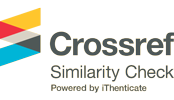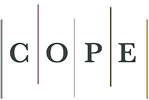Marriages and more. Eugenic discourse on mate selecting process. The case of Viva Cien Años magazine, 1935-1947
DOI:
https://doi.org/10.35305/ac.v13i14.592Keywords:
Eugenics, Marriage, Couple, SelectionAbstract
The main objective of this article, addresses the issue of selecting, ranking and classifying mates proposed by eugenics as a scientific discipline during the thirties in Argentina. In order to achieve this, we analyze the mechanisms of discursive construction from a wide circulation media (the case of the Viva Cien Años magazine) which advised about forming marriages. We will see how an intertextuality is stablished between several discourses -as is the case of medical discourse , academic, political , religious , etc.-, that bring to follow a kind of recipe in order to choose the right partner. The argument underlying these mechanisms, trying to persuade mostly women , is based on the pursuit of racial improvement and the optimization of heritable characteristics , as a part of the " duty to the Fatherland.". These issues served as the backbone of a discourse rooted in the ideal of healthy and strong people, which the eugenicists and other professionals took and tried to spread. according to their pedagogical objective , on the one hand and their preventive objective, on the other.
Downloads
References
ARMUS, Diego y BELMARTINO, Susana, Enfermedades, médicos y cultura higiénica, Sudamericana, Buenos Aires, 2001.
BARRANCOS, Dora, Inclusión/exclusión. Historia con mujeres, Fondo de Cultura Económica, Buenos Aires, 2001; .
BARRANCOS, Dora, Mujeres en la Sociedad Argentina. Una historia de cinco siglos, Sudamericana, Buenos Aires, 2007.
BARRANCOS, Dora, GUY Donna y VALOBRA, Adriana (editoras) Moralidades y comportamientos sexuales. Argentina 1880-2011, Biblos, Buenos Aires, 2014.
DE DIEGO, José Luis (director) Editores y políticas editoriales en Argentina (1880-2000), Fondo de Cultura Económica, Buenos Aires, 2006.
GRAMMATICO, Karen, “Obreras, prostitutas y mal venéreo. Un Estado en busca de la profilaxis”, en GIL LOZANO, Fernanda, PITA, Valeria e INI, María Gabriela (directoras) Historia de las mujeres en la Argentina. Siglo XX, Taurus, Buenos Aires, 2000.
GUTIERREZ, Leandro y ROMERO, Luis Alberto, Sectores populares, cultura y política, Sudamericana, Buenos Aires, 1995.
LINARES, Luciana, Delineando los cuerpos. Construcciones discursivas en torno a la mujer a través de la propaganda eugénica en Argentina. El caso de la publicación Viva Cien Años. 1935-1947, Tesis de Maestría, Universidad Nacional de Mar del Plata, 2014.
MIRANDA, Marisa, Controlar lo incontrolable. Una historia de la sexualidad en Argentina, Biblos, Buenos Aires, 2011.
MIRANDA, Marisa, “La Argentina en el escenario eugénico internacional” en MIRANDA, Marisa y VALLEJO, Gustavo (directores) Una Historia de la eugenesia. Argentina y las redes biopolíticas internacionales. 1912-1945, Biblos, Buenos Aires, 2012.
MÚGICA, María Luisa, La ciudad de las Venus impúdicas. Rosario, historia y prostitución. 1874/1932, Laborde Editor, Rosario, 2014.
NARI, Marcela, Políticas de maternidad y maternalismo político. Buenos Aires, 1890-1940, Biblos, Buenos Aires, 2004.
PALMA, Héctor, “Consideraciones historiográficas, epistemológicas y prácticas acerca de la eugenesia”, en MIRANDA, Marisa y VALLEJO, Gustavo (compiladores) Darwinismo social y eugenesia en el mundo latino, Siglo Veintiuno, Buenos Aires, 2005.
SIDICARO, Ricardo, La política mirada desde arriba. Las ideas del diario La Nación. 1909- 1989, Sudamericana, Buenos Aires, 1994.
STEPAN, Nancy, A hora da Eugenia. Raça, género y nación no América Latina, Fiocruz, Río de Janeiro, 1991.
VEZZETTI, Hugo, “Viva Cien Años: Algunas consideraciones sobre familia y matrimonio en la Argentina”, en Punto de Vista, Buenos Aires, 1985, Año XI, Nº 27.
Published
How to Cite
Issue
Section
License
Avances del CESOR ratifies the Open Access model in which the contents of scientific publications are fully available for free on the Internet, without temporary embargoes, and whose publishing costs are not transferred to the authors. This policy aims to break the economic barriers that generate inequities in access to information, and publication of research results.
Authors retain the copyrights of their papers and grant the journal right of first publication with the work simultaneously licensed under a Creative Commons that allows others to share the work with an acknowledgement of the work's authorship and initial publication in this journal.



















































